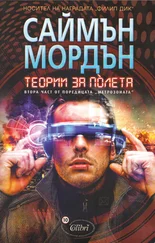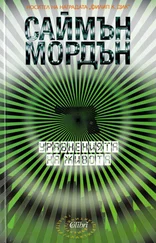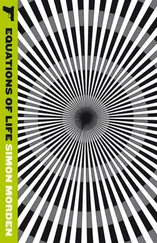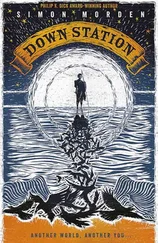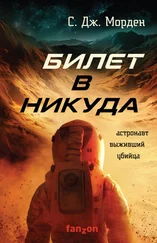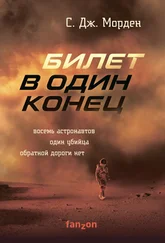“Yeah, well.” Petrovitch blew out a stream of air. “Don’t spread it around. I’ve a reputation to keep.”
“I want to help you. I want to do for you what you did for me.”
“I’m not lying on a filthy mattress in a kidnapper’s freezing-cold basement getting trashed on cheap vodka just to stay warm.”
“Your colleague Doctor Ekanobi is. Apart from the vodka part.”
“We had one of your CIA agents in custody, and I’d hoped for an exchange, but Sonja said she was forced to just hand her back. We got nothing in return.” Petrovitch pursed his lips. “No one has seen Pif for ten months. Homeland Security have her… somewhere. Even I can’t find out where. You know, all your really confidential stuff is done on hand-written notes now. You use typewriters. You courier it in briefcases wired to incinerate their contents if they’re tampered with. I have nothing, Dalton. I can’t even suggest where to start looking for her.”
“Why don’t you let me deal with that?”
“If the Nobel committee can’t find her, what makes you think you can?”
“Because I’m flying to California tomorrow with a writ of habeas corpus in my pocket. I’m going to serve it in the State Supreme Court, and I expect them to rule on it in a couple of days. Wherever she is, whoever has her, will have to bring her to court and argue their case in front of a judge.”
“Far be it from me to point out some flaws in your plan, but are you a complete mudak? Apart from the fact all they’re going to do is laugh in your face when you wave your little piece of paper at them, you’re going to end up dead on the court steps. If someone doesn’t shoot you first, a rent-a-mob will beat your brains out with their fists.”
“They won’t laugh at me, Petrovitch. The justices take their responsibilities very seriously indeed. They have to act. They have no choice. Habeas corpus applies equally in all courts. It applies to every branch of the judiciary and the executive. It applies to everyone, citizen or not. They have to produce her person and give their reason, in law, why they can continue to hold her. There are no exceptions to this rule, and believe me, I’ve done my homework.”
“So why the chyort has no one done this before?”
“Because you have no friends over here. No one’s going to stand up for you, or her. I know you tried to ginger up some interest, but you’re fighting against Reconstruction. We all know what waits for us if we step out of line.”
“What I don’t get is why you’re willing to risk that. Dalton, we were done. We had a deal and we carried it to a mutually beneficial conclusion. It’s over. You don’t owe me anything, anymore than I owe you.”
“I’ve read everything about you. I know what you’ve done, what you had to go through to do it. I know about the Sorensons and the CIA. I know about this… thing you call Michael and where it came from. I know about the Long Night. I know what you are. I know you. You don’t get me because you’re not me. You don’t know anything about me, about the thousand little compromises I make every waking hour just to fit in with this vast, cold monolith called Reconstruction. If you knew me, you’d curse me and call me a coward, because that’s what I’ve been like every day for five years.” Dalton looked above the camera. There must have been a clock on the wall behind it. “I was only supposed to be on for five minutes. Six max. No matter how careful I’m being, they can still trace this call.”
“I can deal with that,” said Petrovitch. “You know they’re going to crucify you. You’re going to lose everything. Your wife is going to leave you and take your kids with her. Her daddy’s going to ruin you. And you’ll be so fired, I’ll be able to see the detonation from orbit.”
“I know.”
“And you’re still going to go through with this?”
“Yes. Flight’s booked. My case is packed. I’m leaving tomorrow.”
“I don’t know what to say. I’m supposed to be the king of the futile gesture, and here I am, trumped by some stupid Yankee lawyer. I can only say this one more time: Dalton, don’t do it.”
“The time when you could tell me what to do is long past, Petrovitch. I don’t think I’ll have to call you again to let you know how I’m doing. I think that’s going to be pretty obvious.”
“Just… when all this is over, and you need somewhere to hide: I can do that for you, too.”
“Thank you.” There was a tone, and a woman’s voice announced that his next appointment was outside. “I won’t keep him a minute, Adele.” Dalton muted the intercom. “Not that it’s going to matter. All my clients will drop me like a scalding-hot stone when they find out.”
“You’d better go.” Petrovitch blinked. He’d walked all the way to Limehouse. A truck was rattling slowly up behind him, its back full of blue-overalled nikkeijin: an Oshicora work crew. He raised his hand to the driver, who brought the vehicle slowly to a halt.
“Goodbye, Petrovitch.”
“Goodbye, Dalton. And good luck.” Petrovitch caught the outstretched arm of one of the workers and clambered up over the tailgate. The men and women shuffled aside to make room for him, and he sat down, back against the low metal side.
“Petrovitch-san,” said the foreman, “you are crying.” He proffered his own packet of paper tissues, of which there was one left.
“It’s dust. And these yebani eyes.” Petrovitch tapped the white of his left eye with his ragged fingernail so that it made a distinct hollow tock. “It always happens when it’s cold.”
The truck took him all the way to Green Park, through the area worst affected by the Outie advance: the East and West Ends, Commercial Road and Whitechapel, Aldgate and Holborn, and Aldwych.
A few of the damaged buildings were being saved. Most had been torn down, the remains of them carted away to be picked through and recycled by Metrozoners south of the river and desperate for work. There were lucrative contracts for that, like there were contracts for everything these days.
In place of the lost historic facades, towers of steel and glass rose up to touch the sky—and the Freezone was making sure that each and every one of them could generate their own power, cool themselves down in summer and heat themselves up in winter, and be as safe and clean and bright as they could be.
The architects loved Petrovitch, too.
As soon as the truck stopped, he vaulted off the back and onto the road. He made his sayonara s, and started down Piccadilly. He glanced up at the ruins of the Oshicora Tower, its pinnacle catching the low winter sun as it sneaked through a gap in the high cloud.
Father John had evidently made it down again. Petrovitch didn’t care much if he’d done so in one piece. It was tempting to make the ascent again, just for himself, like it had been in the beginning. He toyed with the idea before dismissing it: if he broke the established ritual, someone might ask why. Which would be bad. He needed to keep everyone’s attention focused on the things he did in the open, so that they wouldn’t start looking for his sleights-of-hand.
Misdirection. It was harder work than mere secrecy.
He rounded Hyde Park Corner. He had a suite of rooms in the nearby Hilton, what was left of it. No one would be there, though: Valentina and Tabletop would be stalking the streets, searching for the unaccounted-for CIA agent Slipper, while Lucy was busy—at least, should be busy—in Petrovitch’s lab. New lab. There wasn’t much left of the old one, or anything else around it. V’nebrachny Americans.
They were building on Hyde Park, just like they seemed to be building everywhere, though the work was slower because of the bodies they kept on exhuming and carrying away to a temporary mortuary on the edge of the site. But they worked none the less. Cranes, trucks, workers. Pile-drivers, welders, scaffolders. So much noise where there had been only silence.
Читать дальше

![Саймон Морден - Билет в никуда [litres]](/books/388091/sajmon-morden-bilet-v-nikuda-litres-thumb.webp)
![Саймон Морден - Билет в один конец [litres]](/books/395533/sajmon-morden-bilet-v-odin-konec-litres-thumb.webp)

